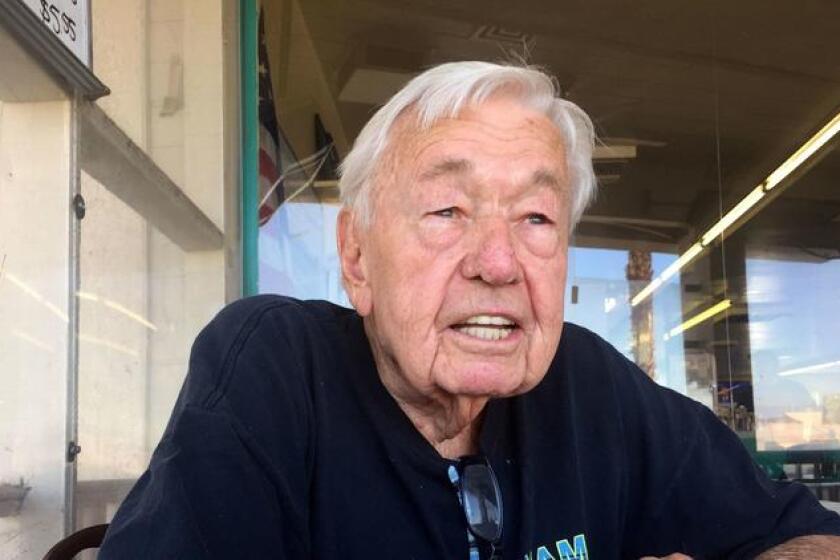Judge Refuses to Order LAPD Battering Ram to Back Down
- Share via
A Los Angeles Superior Court judge refused Tuesday to order the Police Department to halt use of a controversial motorized battering ram and explosive diversionary devices to raid suspected fortified drug “rock houses,” saying there is insufficient evidence to justify such a ban.
“I think I should defer to the police in terms of how to handle a situation in the field,” Judge Irving A. Shimer said in refusing to grant the preliminary injunction sought by the American Civil Liberties Union, which claims the devices are dangerous and should be used only to prevent injury or death.
“I can’t tell the police--not on the basis of four experiences--that they can’t use the battering ram,” he said. “I have to recognize that those who purvey narcotics in those types of cases tend to be armed. I would have no hesitancy in saying, ‘Better to let 10 walls be broken down than to have one officer paralyzed for the rest of his life.’ ”
The judge apparently was referring to Police Detective Norman R. Eckles, who was shot in December, 1983, while serving a search warrant in South-Central Los Angeles.
Wants Judge Advised
However, Shimer recommended that police inform a judge before using the motorized battering ram in the future. But he stressed that the police would not need the judge’s permission to use the ram. Shimer did not elaborate and an attempt to reach him was unsuccessful.
He said the Police Department “botched” its first use of the tank-like ram on Feb. 6.
Armed with a search warrant, officers used the vehicle and its 14-foot steel nose to smash down the wall of a Pacoima house occupied, they learned later, by two women and three small children. The raid, which turned up no weapons and only a minute quantity of drugs, was based on “faulty” surveillance, Shimer said. The battering ram has been used three times since.
The ACLU suit, brought on behalf of Dolores Langford and sons, Dyvon, 9, and Eddie, 4, who were visiting the Pacoima home at the time of the raid, claims that use of the device constitutes deadly force and violates state and federal constitutional protections against unreasonable search and seizure.
Shimer also expressed reservations about so-called “flash-bang” devices, which police use to create noise and smoke as a diversion.
“If we learned nothing else from what happened in Philadelphia, we learned we must match our means to the circumstances,” the judge said. But he noted again that he is “reluctant to meddle in police tactics.” He was referring to a May 13 incident in which police dropped a bomb on a Philadelphia row house occupied by a radical group, causing a fire that destroyed 61 homes and killed 11 people.
Deputy City Atty. Jack Brown, who argued the city’s case, said police are taking more precautions with the devices, which resulted last December in the death of Lessie Haynesworth, a South-Central Los Angeles woman, in a drug raid.
He told ACLU attorney Joan Howarth that the proper forum for resolving the issue was the court when the case came to trial. He urged that the case be put on an “expedited trial calender,” which Howarth said would bring the case to trial in about a year. Otherwise it could take up to five years, she said.
Although disappointed, Howarth vowed that “this is not going to go away.” She said the ACLU may file another request for a preliminary injunction based on future police use of the battering ram and explosive devices.
A federal civil rights damage action on behalf of Langford and her two children is pending in federal court before U.S. District Judge A. Wallace Tashima.










